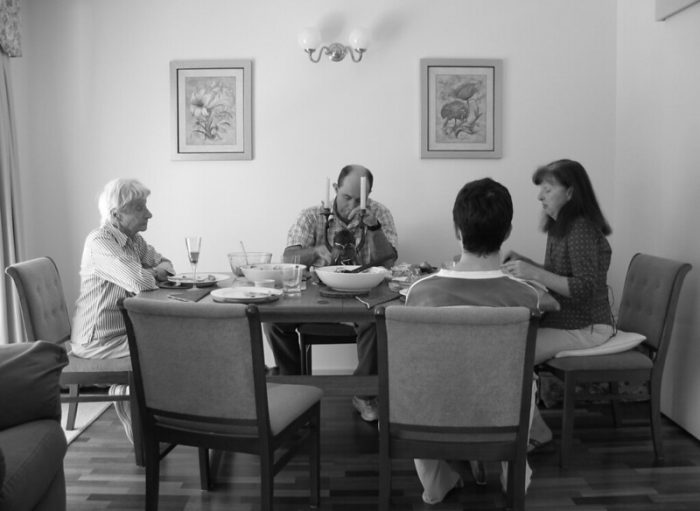“The family inside is frightful
Escape looks so delightful.
Since it’s only about what we show
Let me go. Let me go. Let me go.”
The absence of emotional support in childhood can be damaging and long-lasting.
Any family gathering will only make all of this so much worse. Christmas is often one of the most dreaded times of the year. There really are only two options: you go “no contact” or you grab as much advice as possible and spend time with people who probably are not going to respect your boundaries and will reinforce all the years of painful childhood neglect that you endured.
It is possible to minimise the damage. I have offered some hints and tips in my previous article, but it is best to first try and see the different ways that your family can be the Grinch who stole Christmas.
Here are six ways:
1. Spending time with your CEN parents.
Childhood Emotional Neglect (CEN) doesn’t just go away on its own. If your parents were emotionally blind when they raised you, they are probably still emotionally blind.
So, if you felt overlooked and misunderstood as a child, this uncomfortable, difficult to name feeling will be there every single time you visit your parents.
You might find yourself feeling irritated, frustrated, or angry at your parents without any real evidence for it, and that might even make you feel guilty for not loving them more. This makes for a very uncomfortable day.
2. Weird-ass sibling reactions:
The thing about CEN is that it does affect all of the kids but usually differently.
Everyone senses something is a bit off (it’s emotional validation and attention) but they don’t know what it is or what it means.
Emotionally neglected siblings tend to go either of two different ways. They might compete for the feeling of being seen and heard that they’re not getting from the parents, or they might just look for it outside the family.
They might drift apart. Bringing CEN siblings back together for the holidays as adults might leave them feeling either competitive or impossibly distant. You might end up feeling hurt, attacked, or simply uncared about. Not a good way to spend the holidays.
3. The disappointment:
The hype and excitement of the holidays have a way of building up our expectations. Even if we’ve had shitty years before. There is so much social pressure to anticipate having a “wonderful time of the year,” and most of us end up caving in to the pressure.
We start each season hoping that things will be jolly and happy this year. It’s impossible to avoid the disappointment that you feel when it’s not. It’s also an awkward topic of conversation to have with friends—especially when you can’t explain how you feel for yourself.
4. Emptiness becomes more obvious:
With your feelings pushed underground, you might be living with some feelings of emptiness or numbness that come and go in your life.
So, it’s not surprising that during the holidays when you are “supposed” to feel so much joy, your lack of feeling becomes more obvious. Most CEN people feel extra empty during the holidays. Delightful. Quite often your partner or friends will notice the difference in you and be a bit confused—which leads to the next one.
5. Feeling distant from everyone in general:
Our feelings are meant to deepen our connections with people and add meaning and strength to all our relationships. But when you’ve been pushing your feelings away, you might long for the feeling of warm connection that other people seem to be enjoying. You might feel more alone, more disconnected in sharp contrast to what you know is the holiday ideal. It is everywhere.
6. The focus on family appearances feels fake and empty:
Here’s the thing about the superficial conversation and interaction of CEN families: it’s a little like drinking watered-down coffee; it’s boring, unsatisfying, and not all that enjoyable.
It’s part of the reason why so many CEN people find themselves bored when they’re with their families. That can lead to even more guilt.
How do we fix this?
1. Show yourself some softness and kindness.
Be gentle. I have a whole list of survival strategies and you can go through this with your therapist or just write down a few things you do to self-soothe—and now is not the time to judge them. Things that make you feel safe and make time disappear. This is what was missing when you were growing up—so after all, this isn’t something that comes easily to you anyway.
Get support. Watch for moments when you are pressuring yourself to feel, act, or be a certain way. Catch yourself and remind yourself that you are okay as you are; you are not required to be anything for anyone. ‘Tis the season to be kind: to yourself. So then…
2. Manage what you expect.
Try not to get caught up in the expectation that all will suddenly be great this year and that you “should” be happy. Recognize that you might not be able to change your family, but you can change yourself. That takes time and effort.
Try to keep your expectations realistic when you think about the holidays. It’s a good time to make a promise to yourself to get some work in with a therapist before next year. So that all these feelings don’t overwhelm you the next time the family gets together. Finally…
3. Self-care. Self-care. Self-care.
One great risk for CEN people through the holidays is looking after other people’s needs. And ignoring their own.
So I’d like to suggest that you consciously pull your focus away from everyone outside yourself, and direct your nurturing skills at yourself.
You are responsible for caring for yourself first and everyone else comes second. Make sure you get enough rest, help, healthy food, and enjoyment. It’s not selfish. It’s necessary!
This is not about something you’ve done or you at all—but only you can stand up for yourself and be what you needed in childhood. May the Force be with you.
`











Read 6 comments and reply